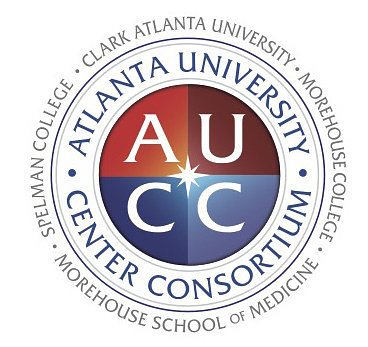
HBCU Pipeline to Power: Program Diversifying Future of Public Service
A new initiative is equipping HBCU students with the skills and connections to break barriers and build a more representative government. Explore how this program is changing the face of public service.
HBCU Pipeline to Power: Program Diversifying Future of Public Service
Atlanta, GA – In a nation grappling with calls for greater diversity and inclusion, one program is quietly building a pipeline of future leaders poised to reshape the landscape of public service. The Atlanta University Center Consortium’s (AUCC) A.T.I. Summer Leadership Training program is not just preparing HBCU students for government careers – it’s actively diversifying the very institutions that serve our communities.
Launched in 2023 with a $2 million investment secured by Congresswoman Nikema Williams (GA-05), the A.T.I. program is designed to address a stark reality: despite representing a significant portion of the college-educated Black population, HBCU graduates remain underrepresented in federal government roles – currently accounting for roughly 4% of the workforce. The AUCC recognized this disparity and created a program specifically tailored to equip these students with the tools and connections needed to succeed.
“We saw a clear need,” explains a program administrator at the AUCC. “HBCU students often face unique barriers – limited access to internships, a lack of established networks, and sometimes, systemic biases. This program is about dismantling those barriers and creating opportunities for these bright, talented individuals to thrive.”
The eight-week intensive program offers a unique blend of professional development, hands-on experience, and immersion in the heart of the nation’s capital. Students receive training in federal resume building, navigating the intricacies of the American political system, and honing their leadership skills. But the true differentiator is the week-long residency in Washington, D.C., where they interact with nearly two dozen federal agencies.
“It’s not just about learning the theory,” explains a recent program graduate. “It’s about building relationships, understanding the culture of these agencies, and realizing that a career in public service is attainable.”
A Targeted Investment in Future Leaders
The $2 million investment from Congresswoman Williams wasn’t simply a grant; it was a strategic bet on the future of leadership. The funds are allocated to student stipends, crucial for ensuring that financial constraints don’t prevent talented students from participating, as well as workshops, travel, and program administration.
“This program is about more than just individual success,” says a legislative aide familiar with the program's funding. “It's about building a more representative government that truly reflects the diversity of the communities it serves.”
The impact of the program extends beyond the immediate benefits to participants. The AUCC reports an 85% employment rate for graduates in public service roles within one year of completing the program. This success isn't accidental. The program’s curriculum is meticulously designed to address the specific challenges faced by HBCU students, and the strong alumni network provides ongoing mentorship and support.
“We’re not just sending students out into the world and hoping for the best,” says a program mentor. “We’re providing them with the resources and connections they need to build long, successful careers in public service.”
Bridging the Gap: A Model for Inclusion
The A.T.I. program isn’t operating in a vacuum. Similar initiatives are emerging across the country, all aimed at diversifying the public sector. However, the AUCC program stands out for its targeted focus on HBCU students, the comprehensive curriculum, and the emphasis on building a strong alumni network.
“What’s particularly impressive about this program is the intentionality,” explains a policy analyst familiar with diversity initiatives. “It's not a one-size-fits-all approach. It’s specifically designed to address the unique needs of HBCU students and create a pipeline of diverse leaders.”
While the program’s impact is still unfolding, the early results are promising. The A.T.I. program is not only diversifying the ranks of public servants but also challenging the systemic barriers that have historically excluded HBCU graduates from these opportunities.
“We’re seeing a real shift in the culture of public service,” says a program administrator. “Agencies are beginning to recognize the value of diversity and actively seek out talent from HBCUs.”
One recent graduate, now working at the Department of Education, shared, “I honestly didn’t think a career in the federal government was attainable for someone like me. This program opened my eyes and gave me the confidence to pursue my dreams.”
The A.T.I. Summer Leadership Training program is more than just a training program; it’s a catalyst for change, a beacon of hope, and a testament to the power of investing in the next generation of diverse leaders. As the program continues to grow and evolve, it promises to reshape the landscape of public service and build a more representative government for all.
Looking Ahead
The AUCC is actively seeking to expand the program’s reach and impact, with plans to increase the number of participating students and establish partnerships with additional federal agencies. They are also exploring opportunities to replicate the program at other HBCUs across the country.
“We believe this model can be scaled,” says a program director. “By investing in HBCU students, we can create a more diverse, equitable, and effective public service for generations to come.”
